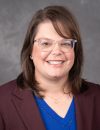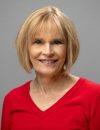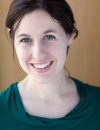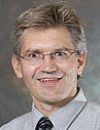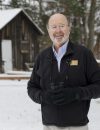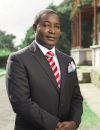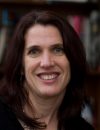UW-Madison will suspend in-person classes for at least three weeks, an unprecedented action by Wisconsin’s largest university taken to slow the spread of COVID-19, the respiratory disease caused by the new coronavirus.
UW In The News
-
These Lab Animals Will Help Fight Coronavirus
Dave O’Connor, a pathologist at the University of Wisconsin, Madison, is working with colleagues to test the usefulness of monkeys in the study of coronavirus treatments. He said that a Chinese group had already published some data on rhesus macaques and he had heard that more results from other labs around the world would be coming soon.
-
How Saunas Could Boost Your Mental Health
In 2016, Charles Raison, a researcher at the University of Wisconsin–Madison, published an intriguing study of 30 patients with clinical depression. Half of them rested on a bed while an infrared heat-lamp array raised their body temperature to 101.3 degrees.
-
US reaches moment of truth on coronavirus
Quoted: “We’re currently in a worrisome situation because this is a disease for which people do not have natural immunity from past exposure, and there’s currently no vaccine and no treatment,” said Vicki Bier, a professor at the University of Wisconsin-Madison who specializes in risk analysis for homeland security.
-
Facebook takedowns reveal sophistication of Russian trolls
Quoted: That report, from University of Wisconsin-Madison professor Young Mie Kim, found that Russia-linked social media accounts are posting about the same divisive issues — race relations, gun laws and immigration — as they did in 2016, when the Kremlin polluted American voters’ feeds with messages about the presidential election. Facebook has since removed those accounts as well.
-
These Six States Could Determine the 2020 Presidential Election
Quoted: “The Electoral College creates these strange incentives for campaigns to ignore most of the country and pour their attention into a small number of places,” Barry Burden, a professor of political science and director of the Elections Research Center at the University of Wisconsin-Madison, told Newsweek.
-
Ideal Glass Would Explain Why Glass Exists at All
The hidden long-range order of this putative state could rival the more obvious orderliness of a crystal. “That observation right there was at the heart of why people thought there should be an ideal glass,” said Mark Ediger, a chemical physicist at the University of Wisconsin, Madison.
-
UW-Madison moving to online instruction amid COVID-19 coronavirus uncertainty
-
Russia Trying to Stoke U.S. Racial Tensions Before Election, Officials Say
Independent researchers continue to identify social media accounts with Russian links. Race was among the top issues that such accounts tried to foster division over, said Young Mie Kim, a University of Wisconsin professor who studies political communication online. Others included nationalism, immigration, gun control and gay rights.
-
What Are The Telltale Signs Of A Department Layoff?
If you want to know if your job is in jeopardy, consider whether management has laid people off recently, said Charlie Trevor, a professor of management and human resources at the University of Wisconsin–Madison school of business.
-
In Human Nature, Crispr’s Origin Story Comes to Life
Noted: There’s no doubt Human Nature will contribute to improving the public’s literacy about Crispr, including the differences between editing cells that can pass down those changes to future generations (germline cells, like sperm, ova, and embryos) and ones that can’t (somatic cells, or those from other body tissues). That’s critical for the future of the technology, says Alta Charo, a bioethicist at the University of Wisconsin-Madison who appears in the film for her work on the National Academy of Sciences’ reports on the ethics of gene editing.
-
Review: Waiting for wounds to heal and ‘Real Life’ to begin
Wallace is a graduate student at an unnamed large Midwestern university (Taylor holds a degree from the University of Wisconsin-Madison).
-
UW-Madison health researcher gives advice on fighting coronavirus
I’m not an expert on the COVID-19 virus by any stretch, but I study epidemics and have general knowledge and training that is applicable. Here are my thoughts on what’s happening and what we should do.
-
With Childhood Diabetes, Close Family Ties Lead to Flourishing Adults
Carol Ryff, director of the Institute on Aging at the University of Wisconsin in Madison, who developed the scales of wellbeing used to assess flourishing, called the study a “model of innovative health science for the future” and a “breath of fresh air.”
-
Report: Russian Social Accounts Sow Election Discord-Again
The report from University of Wisconsin-Madison professor Young Mie Kim found that Russia-linked social media accounts are posting about the same divisive issues — race relations, gun laws and immigration — as they did in 2016, when the Kremlin polluted American voters’ feeds with messages about the presidential election.
-
The Rise of Location Trackers for Kids as Young as 3
Quoted: This is not to say that smartwatches for kids don’t have any benefits. As Heather Kirkorian, associate professor of| human development and family studies at the University of Wisconsin-Madison, said that, for example, their texting and phone call functionality can be useful in a world where pay phones aren’t available the way they used to be.
-
2020 Democratic Primary Turnout Is a Problem
Quoted: Barry Burden, a political scientist at the University of Wisconsin who studies voter turnout, says Trump’s huge levels of support defy historical trends about sitting presidents who run for reelection. “A sitting incumbent running for reelection — that shouldn’t stimulate much interest,” Burden says. “It all runs a little contrary to what I think we would’ve expected.”
-
Newell Brands Is Investigated by SEC
Quoted: “The goodwill impairment test is one of the most second guessed of the accounting tests that exist,” said Thomas Linsmeier, professor of accounting and law, University of Wisconsin-Madison.
-
Why are so many more children nearsighted?
The question should be, “How does the technology work for the kids?” said adolescent physician Megan Moreno, a professor of pediatrics at University of Wisconsin, Madison. “Why aren’t the kids getting outside? What is the reason? Is it the screen’s fault or part and parcel of our society? Taking away screens isn’t part of the solution.”
-
Democratic primary voters care about more than electability
To explore this possibility, my colleagues at the University of Wisconsin at Madison’s Elections Research Center and I presented Democratic primary voters with a longer menu of reasons for their choice of candidates. In statewide surveys of 3,600 adults across the battleground states of Michigan, Pennsylvania and Wisconsin, we asked respondents whether they planned to vote in their states’ primaries.
-
Airplanes and Coronavirus: How to Disinfect Your Space
Quoted: “Wiping down surfaces on a plane won’t hurt, as long as it doesn’t give you a false sense of security,” Andrew Mehle, associate professor of medical microbiology and immunology at the University of Wisconsin Madison, said, stressing that sanitizing your space on a plane should be done in conjunction with washing hands and following other best practices.
-
Poet Amaud Jamaul Johnson’s ‘Imperial Liquor’ Draws On Themes Of Protectiveness, Racism, Empathy | Wisconsin Public Radio
A new book from University of Wisconsin-Madison poet Amaud Jamaul Johnson — “Imperial Liquor” — taps into themes of paternal protectiveness, the pervasiveness of racism and the possibility of empathy.
-
Super Tuesday: Democrats are looking to consolidate a broad coalition
Quoted: “Whatever the magic was in 2008, it’s not been re-created this year in terms of bringing out voters,” said Barry Burden, a political science professor at the University of Wisconsin-Madison.
-
Who will win the California primary? Counting mail-in votes can take days or weeks.
Quoted: Barry Burden, who is the director of the Elections Research Center at the University of Wisconsin Madison, says that mail-in ballots also take longer to count in some cases: Checking that ballot signatures match, problems with mail-in envelopes, and myriad other issues can all slow things down.
-
Will US troops leave Afghanistan?
One possibility is that Trump will end up asking the Taliban for deeper concessions to reassure voters. But the big question is whether Trump’s hawkish reputation is enough to offset public skepticism about a peace deal with the Taliban.
Jessica L.P. Weeks is associate professor of political science and Trice faculty scholar at the University of Wisconsin at Madison.
-
How daily life will change as coronavirus outbreak enters new phase
Quoted: “An outbreak is not going to happen simultaneously, everywhere,” said Dr. Jonathan Temte, who studies vaccinations and immunization policy at the University of Wisconsin-Madison.
-
Super Tuesday is upon us: Very soon, Democrats must unite or surrender to authoritarianism
Quoted: Barry Burden, director of the Elections Research Center at the University of Wisconsin-Madison. “What benefit you see is probably because once you are on the rolls you are visible to canvassers and campaigns, making it possible for them to reach out to you,” he says. “Registering people to vote is not a silver bullet.”
-
As Wisconsin Lakes Warm, Walleye Are Feeling The Heat
When it comes to climate change there’s a lot of talk of species moving north as temperatures change — but don’t expect a lockstep northward march of species, said Jack Williams, a University of Wisconsin-Madison expert on ecological responses to climate change.
-
Cranberries, Wisconsin’s Most Profitable Fruit, Face An Uncertain Future
“When you change the conditions and those winters become more extreme, the plant is disoriented,” said Amaya Atucha, fruit crop specialist at the University of Wisconsin-Madison.
-
Potato Farmers Grapple With Climate Change’s Impact On Nitrogen Management
Nitrogen management is a huge struggle for potato farmers, said Chris Kucharik, chair of the University of Wisconsin-Madison Agronomy Department.
-
The Feeling You Get After Surviving Layoffs Has A Name
After a layoff, “employees see less of an obligation to be loyal to the company, resulting in more of a free agent mentality,” said Charlie Trevor, a professor of management and human resources in the Wisconsin School of Business at the University of Wisconsin–Madison. “With this mentality comes the freedom to actively seek another job where, hopefully, one’s future will be less tenuous.”
- Newer stories
- Page 63 of 140
- Older stories
Featured Experts
Noelle LoConte: Pancreatic Cancer Awareness Month
Pancreatic cancer is one of the most difficult cancers to prevent, diagnose or treat. Earlier this month, music legend Quincy… More
Kathleen Glass: Food safety
Food is an integral part of Thanksgiving. And who doesn't love leftovers? But after how long should you leave those… More
Cecelia Klingele: Body-worn cameras by police
Madison Police Chief Shon Barnes is requesting that the city fund widespread use of body cameras for officers in the… More
Jonathan Temte: The seasonal flu shot
Family medicine professor Jonathan Temte is available to discuss this year's updated seasonal flu shot and flu prevention and control. More
Stanley Temple: Fall phenology
The days have finally started getting cooler and we all know winter awaits. Stanley Temple, an expert on birds, wildlife, endangered… More
Alvin Thomas: Movember and Men's Health Month
You might see more facial hair this month as Movember goes into full effect, drawing awareness toward men's health. Alvin… More
Dominique Brossard: Vaccine hesitancy
With a new administration poised to take power in January, a change in policy regarding vaccines may also be on the way.… More

